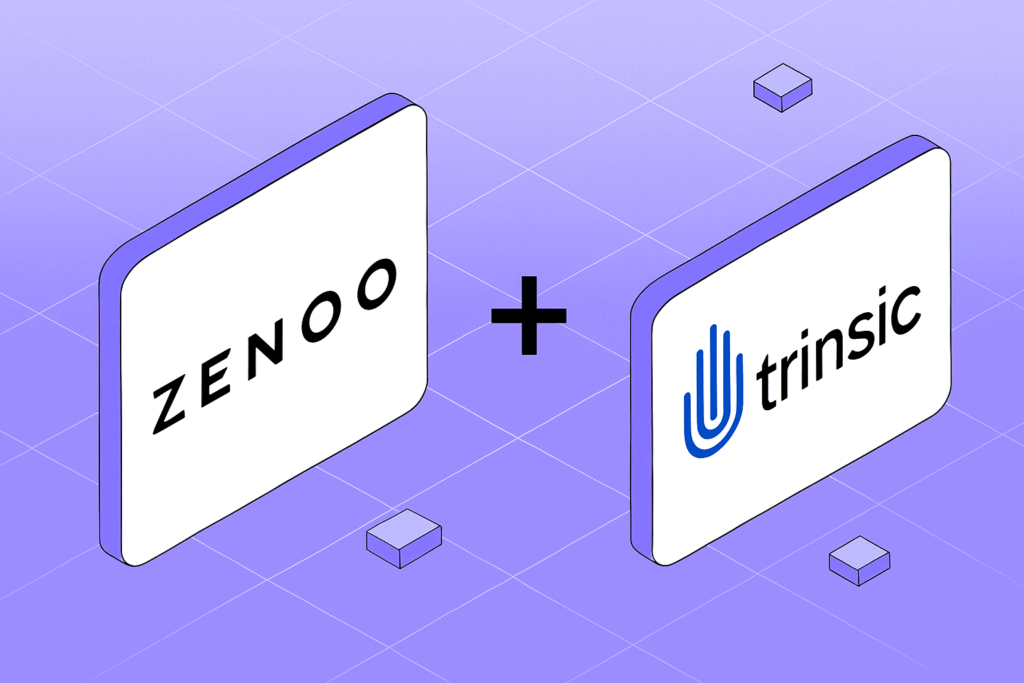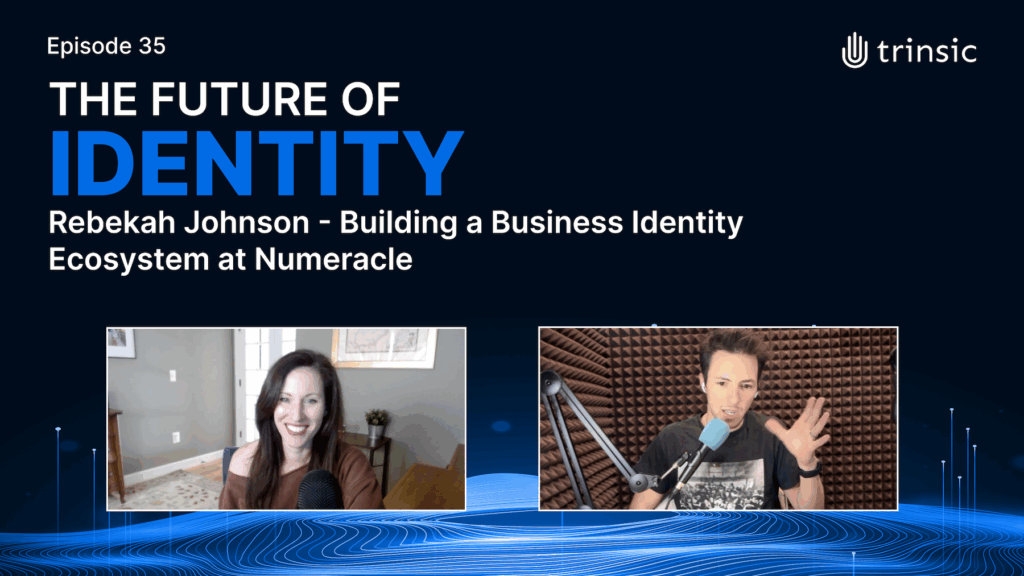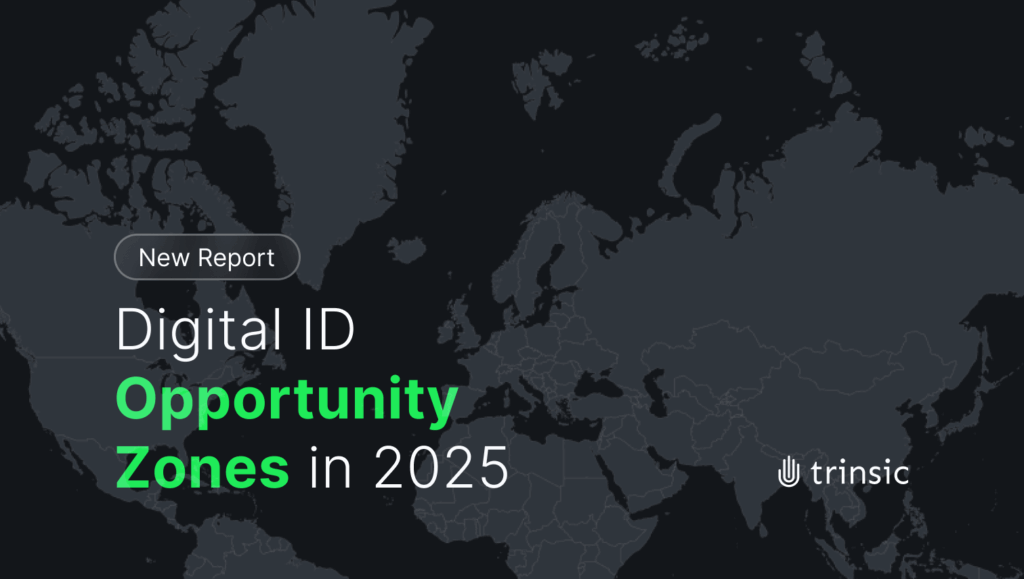Over the past few months, a number of apps have been developed that use verifiable credentials to streamline the transfer of data in the COVID-19 testing process. However, Bart Cant, Founder and Managing Partner of Rethink Ledgers, decided to use a unique approach in developing his prototype app. Not only did he use verifiable credentials for the secure sharing of COVID-19 test results and vaccine information, but he also based his app on smart contracts.
Bart’s app uses the Trinsic platform for the verifiable credentials portion, so we interviewed him further about his app, how it works, and future plans.
Let's dive right in. What is the app called, and what does it do?
The app is called “State Surveillance System for Covid19 Testing and Vaccine Distribution Management”. It is a prototype app developed using DAML (Digital Assets Modeling Language) and W3C’s verifiable credentials. The app showcases a prototype solution that provides a digital, secure experience for citizens, health clinic providers, and state agencies to share COVID-19 test results, “proof of vaccine” administration, and other “immunity proofs” using a centralized ledger.
What inspired you to build this app? What problems are you trying to solve?
My background has been in digital transformation, and I spent the last few years building blockchain-based solutions for large enterprises at Capgemini and IBM. While blockchain and distributed ledger technology provide many opportunities, I realized in the last few years that for many use cases and processes, there are some components of blockchain that are really valuable (e.g., cryptography, tamper-proof evidence), but some processes could be better served in a more centralized way.
When the COVID-19 pandemic hit, I wanted to apply my knowledge and talent, so I decided to join the COVID-19 Credentials Initiative (CCI). By contributing to the use case and development of a prototype application, I hope to contribute to building solutions that can help keep people safe and bring back some normalcy in our daily lives.
The problems I am trying to solve include the secure and timely sharing of COVID-19 testing data. Specifically in the case of COVID-19 testing, it is essential that all test results are communicated in a secure, privacy-enhanced, and safe environment. Secondly, accurate and timely data is critical for policy setting, so sharing data with state or local agencies in an automated way is also achieved.
How does the app use both smart contracts and verifiable credentials?
As I mentioned previously, the app was developed using a combination of the DAML privacy-enhancing, smart contract language and W3C’s verifiable credentials. DAML guarantees privacy by coding the solution as rights and obligations. The information is stored, so it cannot be accessed unless the party accessing that data has been explicitly configured in the smart contracts to access it. DAML is also one of the few solutions that allows interoperability across networks. The solution is built on a centralized ledger based solution (https://projectdabl.com/) but could be easily deployed on other blockchain networks (e.g., Hyperledger Fabric, Sawtooth, Besu or R3 Corda), centralized ledgers (e.g., AWS QLDB), or traditional databases (e.g., Postgres).
The second major technical component of the solution is how it interacts with verifiable credentials. Verifiable credentials are used to securely transmit COVID-19 test information from the health clinics to the patient. The application provides a digital workflow for this experience (including a mobile experience) while still being HIPAA compliant and providing a safe and secure mechanism for sharing COVID-19 test data that allows the recipient to be in control of his or her data and decide on what to share and with whom.
The application is already looking forward to the future situation where COVID-19 vaccines will become available. When vaccines are available, at least a portion of the population will receive the COVID-19 vaccine and therefore will be better protected from contracting the virus or potentially infecting others in their communities. By providing verifiable credentials for vaccine proofs, we enhance the trust factor of sharing and disclosing medical information.
What role does Trinsic play in the app? How was Trinsic's platform helpful in the development of your app?
Trinsic is a critical component of the overall architecture of the solution. It is the glue for connecting the smart contracts to the distribution of verifiable credentials.
It uses the Trinsic Studio for setting up DIDs (Decentralized Identifiers) and schemas and can be used as a monitoring tool for connections and distribution of the verifiable credentials. The Trinsic Studio is an easy-to-use web interface for managing verifiable credential exchange with no code. It’s so easy to use that it makes it possible to issue a verifiable credential in less than five minutes! The Trinsic Wallet is also used for accepting and presenting the verifiable credentials.
How does this solution balance the need to track, analyze, and share COVID-19 related data and the privacy concerns that come with that?
With COVID-19, there is a great emphasis on privacy and regulation. Verifiable credentials allow you to share medical data directly from the issuer to the holder without the need to store the data. Smart contracts can be leveraged to orchestrate this process. Additionally, smart contracts can be used to anonymize data by using DIDs, for instance. Additionally, the critical medical data can be blinded and encrypted by the DAML smart contract, so the solution can be both HIPAA and GDPR compliant.
What is the next step from here?
Since the release of my prototype and associated video, I have received a lot of feedback from healthcare professionals and self-sovereign identity advocates. I also am exploring further enhancements to a variety of use cases. There are many similar opportunities to leverage smart contracts and verifiable credentials for COVID-19 tests or vaccines in the entertainment, travel, or education industry.
For example, the solution could be very helpful in international travel. By using the app, tourists from the US that are planning to go to the Caribbean islands can easily share their pre-boarding screening information about COVID-19 tests or vaccines and then provide additional test information upon returning back to the US, avoiding long lines upon entry or mandatory quarantine requirements.
(end of interview)
Recently, Trinsic CEO Riley Hughes joined Bart and DAML representatives in a webinar to discuss and demo the prototype app. To view the webinar, click here. If you are building a COVID-19 related solution that uses verifiable credentials, we are offering the Trinsic platform free of charge. Feel free to reach out to us for more information.









